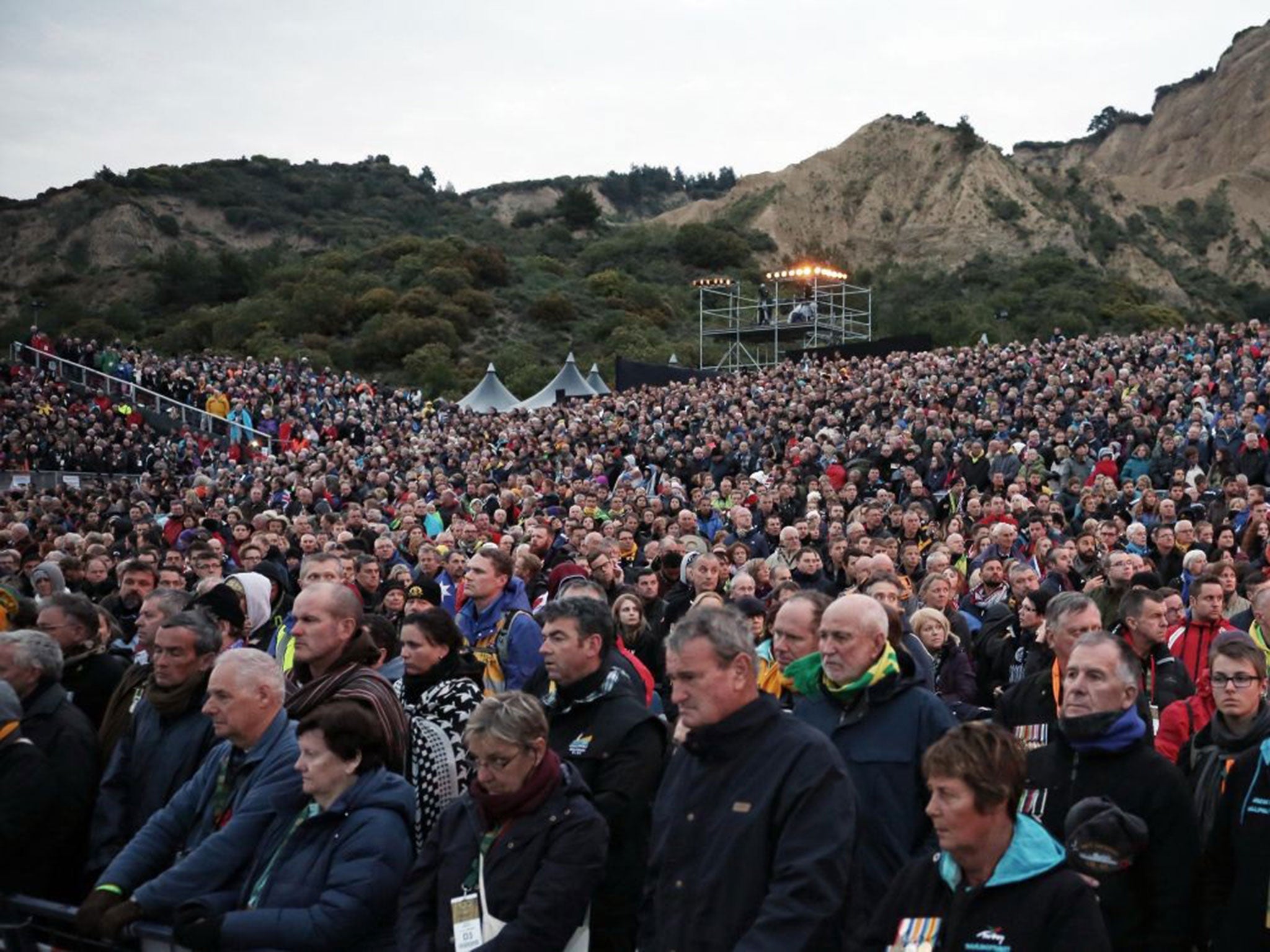Gallipoli centenary: Thousands gather in Turkey to pay tribute to the fallen on Anzac Day
It is 100 years since the Gallipoli Campaign against the Ottoman Empire

Australia and New Zealand have led tributes to the fallen soldiers who died while fighting at Gallipoli in Turkey during the First World War.
Events throughout Saturday, across the world, will mark the centenary of the campaign against the Ottoman Empire in which an estimated 11,400 troops were killed.
Anzac Day marks the landing of the troops and the beginning of a bloody nine month campaign which Australians say mark their country’s emergence as a modern nation.
At a pre-dawn service in Gallipoli, now in modern day Turkey, Australia’s Prime Minister Tony Abbott described the soldiers who fought as the “founding heroes” of their country.
He said: “Beginning here, on this spot and at this hour, 100 years ago, they fought and all-too-often they died: for their mates, for our country, for their King and — ultimately — for the ideal that people and nations should be free.”
The service was also attended by Prince Charles who paid tribute to the “ordinary people called upon to do extraordinary tasks”.
He read an extract from the 1916 book, Gallipoli by John Masefield, a writer who served in British run military hospitals during the war, which described the departure of the boats filled with men going off to fight.
New Zealand Prime Minister, John Key, also commemorated the contribution of Anzac soldiers saying they were "were as good as they could be in their time - now let us be as good as we can be in our time".
He said Gallipoli had become the byword for the best traits of New Zealanders and Australians "especially when they work side by side in the face of adversity".
The conflict also saw the deaths of around 25,000 British, 10,000 French and 86,000 Ottoman soldiers.
Later this afternoon in London, the Queen, the Duke of Edinburgh, who is patron of the Gallipoli Association, and Prince William will join senior government and military figures at a memorial service in Whitehall.
In Scotland, First Minister Nicola Sturgeon will be joined by Scottish Secretary Alistair Carmichael, veterans and members of the public, in a ceremony at Edinburgh Castle.
The Gallipoli campaign, then known as the Dardanelles Campaign, was regarded as a major failure and an acute embarrassment for British military establishment, especially for the young, ambitious First Lord of the Admiralty who devised the campaign, Winston Churchill.
With fighting gridlocked on the Western front, Churchill, then 40, devised a scheme for Allied troops to sail up the Dardanelles chanel, alongside the narrow Gallipoli peninsula and capture Constantinople, now Istanbul, forcing the Ottomans to surrender and bring the war to a close.
The Ottoman Empire was regarded as “the sick man of Europe” and it was believed their forces wouldn’t be able to put up much of a fight.
Writing to a friend just after the war began, Churchill said: “The price to be paid in taking Gallipoli wd no doubt be heavy, but there wd be no more war with Turkey. A good army of 50,000 & sea-power—that is the end of the Turkish menace.”
Speaking at the ceremony, Prime Minister Key quoted Mustafa Kemal Ataturk, who founded modern Turkey after the empire collapsed, who wrote about the fallen Anzac soldiers:
“You, the mothers who sent their sons from faraway countries wipe away your tears; your sons are now lying in our bosom and are in peace.
"After having lost their lives on this land they have become our sons as well."
Subscribe to Independent Premium to bookmark this article
Want to bookmark your favourite articles and stories to read or reference later? Start your Independent Premium subscription today.

Join our commenting forum
Join thought-provoking conversations, follow other Independent readers and see their replies